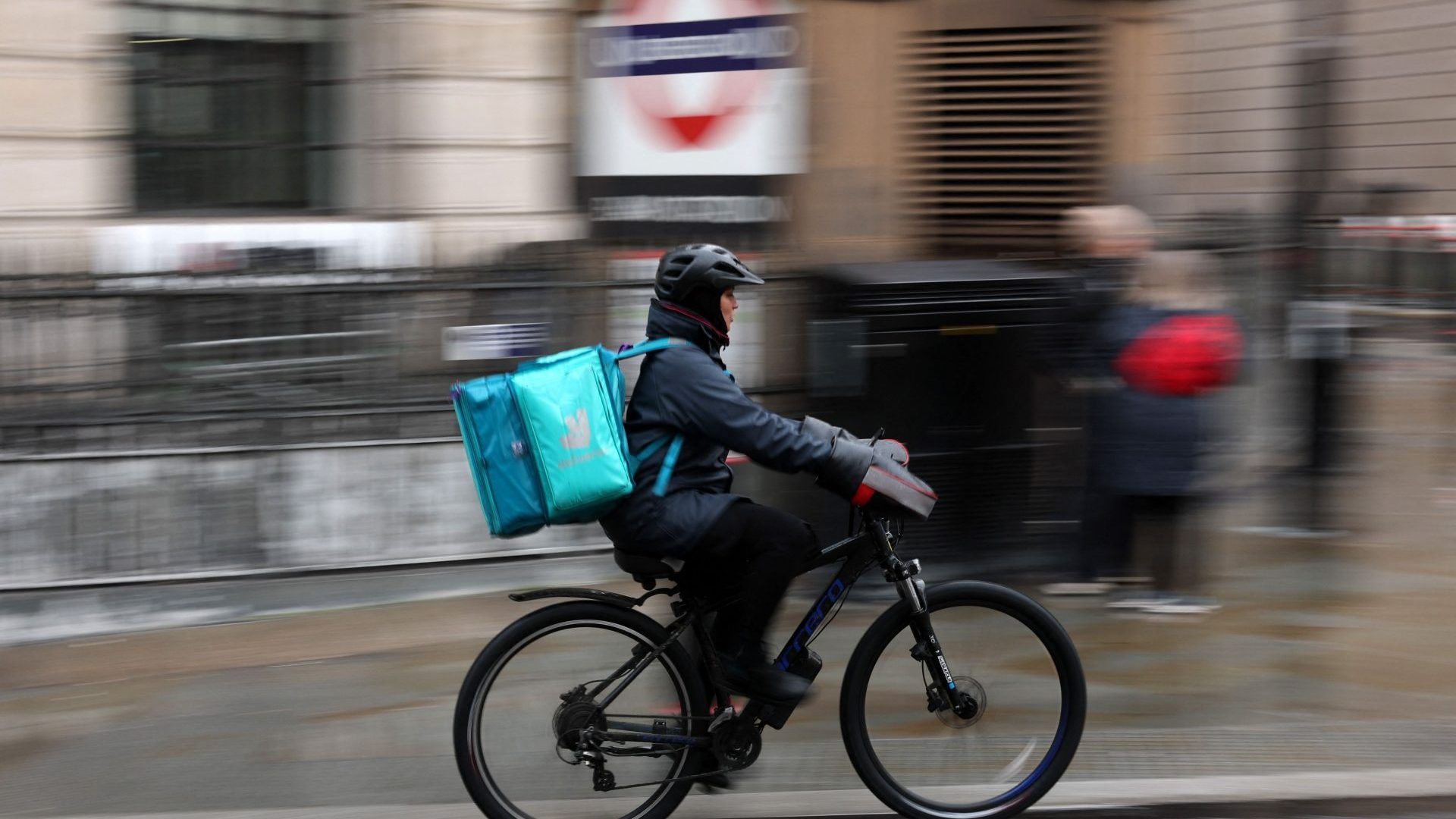Of course, there are many traditional ways in which to celebrate Valentine’s Day. There are flowers and cards and chocolates and things a family newspaper would probably rather I did not spell out. Have you considered, however, that the most romantic gesture of all might be solidarity with underpaid and mistreated workers? I’m blushing just thinking about it.
This Valentine’s Day, thousands of delivery drivers working for Uber Eats, Deliveroo and others are staging a strike, and demanding better pay and working conditions. The walk-out was coordinated by Delivery Job UK, who have asked customers not to order any food on the day. It isn’t hard to see why they’ve had enough.
“I ride 80 miles a day on my moped over the course of nine to 10 hours, and usually make less than the minimum wage after costs”, one of the organisers wrote in the Guardian. “I work six days a week. […] The only way to make more money is to ride faster, which means taking more risks. You can get an extra few pounds an hour if you’re willing to risk your life.”
This may be stating the obvious, but no-one should feel like they have to put themselves in harm’s way in order to deliver three burgers, fries and large cokes. It is incredible that we have built a world in which food deliveries rely on the labour of an overworked underclass.
Then again, perhaps it isn’t. Deliveroo and UberEats drivers have a rough deal, but they aren’t the only ones. Just over a year ago, Amazon employees staged their first ever strike in the UK, protesting against low pay and demeaning policies like timed toilet breaks.
In a TV show released a few months later, Oobah Butler infiltrated an Amazon fulfilment centre, and what he found was shocking. “One of his coworkers tells him they aren’t allowed to sit down while on the clock, another that after eight months on the job, her back pain sometimes brings her to tears”, read one review of the programme.
“On day two, he’s assigned to load a truck, and the fan inside of it doesn’t work, leaving Butler and his coworkers to sweat it out in boiling heat, even though they’d been told they’d be rotated out after half an hour.”
The show should have been a wake up call for people, but it isn’t clear that it was. Perhaps this strike could be, then. There has got to be a way to make people understand that getting everything delivered to your house means fuelling a system which keeps breaking people, mentally and physically.
Fast fashion is cheap because the people who make it are underpaid. Food deliveries are cheap because the people who bring the meals to your home are underpaid. Ordering from Amazon is cheap because the people who put the products in boxes and the people who then bring those boxes to you are underpaid. It’s not rocket science.
Obviously it is convenient to eat a nice curry at home when it’s raining outside, or to get some tchotchke from Amazon because the DIY store is more expensive and closed on Sundays. There’s a reason why those businesses are doing so well.
It should still be worth wondering if your convenience should come at the expense of others. Sure, going to buy something yourself or having to dress up to go to the restaurant may require a smidge more effort, but at least your conscience can be clear. Hell, even if you don’t care about the people, then surely you must care about the environment? Anyone living in a big city will have surely noticed that roads are now chock full of delivery vans and drivers on mopeds. We’ll then wonder why air pollution feels so bad.
There was a point during the pandemic when it looked like people were ready to think about their lives and the future, and what they ought to be changing to make the world a better place. Instead, what happened is that they got used to getting everything delivered straight to their doorstep, and they made the world worse.
Still, it’s not too late – it never is. Support the strikers today, and don’t forget about them tomorrow.










